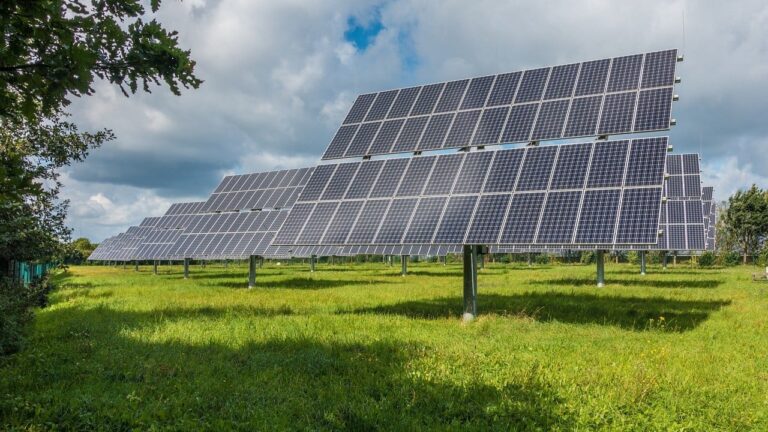A new study led by the University of York has shown that investment in solar farms could provide a major boost to biodiversity in Britain, but only if consistent benchmarks for evaluation are set.
The paper, titled Nature-positive investments in solar energy: sector guidance, advocates investment in solar farms, not only because of the potential contribution to clean energy generation targets, but also for the role that solar farms can play in restoring nature on British soil.
The report also includes a range of indicators and metrics to be used to monitor the impact of solar farm projects on the natural world, including ecology and land management, ESG and green finance. It notes that “Indicators must be communicable, credible, consistent, achievable and scalable to meet stakeholder needs regarding the reporting of nature-positive investments.”
‘Nature positive’ is the term used to refer to the UN target to halt and reverse biodiversity loss by 2030 and achieve nature restoration by 2050.
Researchers assessed different forms of biodiversity measurement based on their potential suitability for use in financial and ESG information. These include bird species richness, soil carbon content, bee and butterfly species richness and nectar production potential. A wide variety of evaluation methods were found to be well suited for use in disclosure and scaling across a portfolio of assets, including many methodologies already used by Solar Energy UK.
Britain was recently named one of the world’s most endangered countries, due to the dramatic decline in biodiversity over the past half century. The report notes that only about a third of a solar farm’s land use is shaded by solar panels, leaving plenty of room for wildlife growth and grazing, while the average solar farm lifespan of forty years allows plenty of time for nature to recover compared to with other years. other forms of land use. The report notes that “combined with solar energy’s position at the intersection of climate, nature and strategic land use policy, the industry is uniquely positioned to integrate natural capital, biodiversity and improvement of ecosystem services at solar farms.”, adding adding that “this outlook also offers promising opportunities for nature-positive investments and potential for trade in emerging nature markets.”
Dr. Tim Coles, project director of the research and CEO of rePLANET, said: “Integrating biodiversity into finance is crucial to building a nature-positive future. In the context of building a green future, achieving national priorities and unlocking technology to achieve Net Zero by 2050, funding for research that integrates biodiversity into finance is essential. This study provides valuable insights into how financial mechanisms can support biodiversity and create robust frameworks and standards for nature-positive investments.”
He added: “We can no longer afford to delay. We must rapidly transform our economic and financial systems to value and invest in our natural environment. We must stop treating nature and climate as separate issues. They are intricately intertwined, with one supporting the other.”


